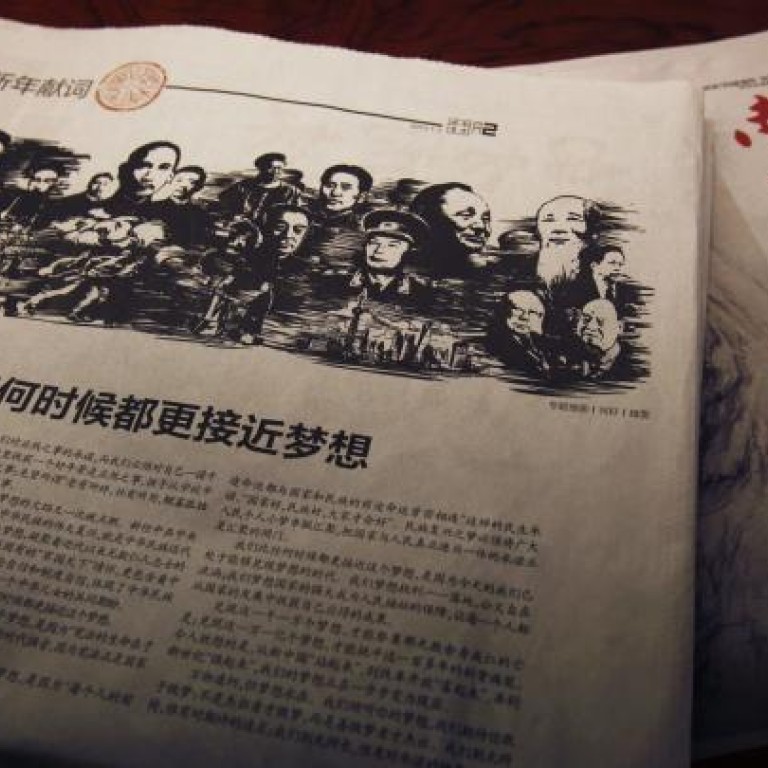
China's brave journalists stand up to censors
China has some of the world's bravest journalists and there are perhaps none more so than those who work for Guangzhou's . Their landmark protest over censorship of an editorial by propaganda officials won widespread support, prompting authorities to opt for negotiations to end a strike rather than crushing it by force. It is tempting to believe that a new dawn has come for media freedom on the mainland, but, in the cold light of reality, it has to be realised that as long as the Communist Party holds power, it will never relinquish control of the gun and the pen. Nonetheless, if the country is to thrive, the government has to "keep pace with the times", as the newspaper so rightly stated in its resumed editions yesterday.
Press freedom does not exist on the mainland; authorities are in full control of what gets printed or broadcast. All media is state-owned. There are journalists constantly trying to push the envelope, though. The rise of social media provides a new avenue for expression, one that is increasingly difficult to censor. As society gets wealthier and more sophisticated, it is inevitable that the system will have to change.
Incoming president Xi Jinping's taking over as the party's general secretary has brought a sense that change is in the air. The new leadership has shown a desire for a more liberal approach. That may well have emboldened the 's journalists and their supporters. Guangdong party chief Hu Chunhua's stepping in to broker a deal between the paper and propaganda office was a sensible move, reminiscent of the resolving of a land dispute between officials and residents of Wukan village last year, but it is premature to believe that a loosening of censorship has begun.
What has been shown, though, is that journalists are getting ever bolder. A strike in the media is nothing unusual to outsiders, but on the mainland it is daring and courageous. Challenging censors is the same as taking on the party. No "external forces" are involved, as some officials have contended; the journalists are reflecting society's wishes.
Authorities have to end their heavy-handed censorship. An unfettered media and freedom of speech will lead to a cleaner government that is more attuned to people's needs. There will be less corruption and wrongdoing. Censorship will not disappear overnight, but if there is to be a place for its loosening to begin, there is none better than the .

